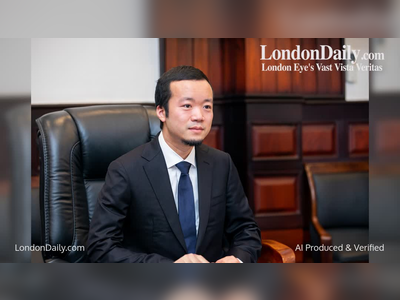Victoria Orders Review of Transgender Prison Placement Amid Safety Concerns for Female Inmates
Corrections Victoria told to update policy after public outcry over placement of male-born prisoner in women’s jail
Victoria’s corrections authority has been instructed to overhaul its strategy for housing transgender prisoners, placing greater emphasis on the safety and wellbeing of women inmates.
The policy shift marks a significant course correction following public controversy over the incarceration of a transgender woman convicted of sexual offences in a female facility.
The review was ordered by Victoria’s Corrections Minister Enver Erdogan, who said on Wednesday that new placement guidelines will require consideration of prisoners’ prior offences and the potential safety risks to other inmates.
He acknowledged that recent events had triggered demands for more robust checks in prisoner classification.
Earlier this month, the case of “Hilary Maloney,” a transgender woman convicted of abusing her five-year-old daughter, drew public and parliamentary scrutiny when she was housed in the Dame Phyllis Frost women’s prison.
The sentencing judge accepted testimony about Maloney’s gender transition as a mitigating factor, prompting accusations that the system prioritized identity over security.
Until now, the Victorian government had maintained that corrections decisions, including inmate placement, fall under the autonomy of Corrections Victoria.
Premier Jacinta Allan denied reversing her earlier stance when the corrections authority was told to “update their policy,” insisting she had not intervened directly.
Under the existing framework, the Corrections Victoria requirement 2.4.1 stipulates that the safety and welfare of both transgender and cisgender prisoners must be the “paramount consideration” in placement decisions.
The policy mandates evaluation of risks associated with housing prisoners whose physical characteristics do not align with the gender environment they enter.
But women’s advocacy groups have long warned that the state does not publicly track which biological males are housed in women’s prisons, nor whether they have histories of violent or sexual offences.
The recent placement of Maloney—a man convicted of child abuse—intensified demands for transparency and reform.
In response, Erdogan said the forthcoming policy update would better balance rights and safety, and could alter Maloney’s housing depending on the outcome of risk assessments.
The review may also prompt debate about sentencing practices and criteria for prisoner placement across the state.
The policy shift marks a significant course correction following public controversy over the incarceration of a transgender woman convicted of sexual offences in a female facility.
The review was ordered by Victoria’s Corrections Minister Enver Erdogan, who said on Wednesday that new placement guidelines will require consideration of prisoners’ prior offences and the potential safety risks to other inmates.
He acknowledged that recent events had triggered demands for more robust checks in prisoner classification.
Earlier this month, the case of “Hilary Maloney,” a transgender woman convicted of abusing her five-year-old daughter, drew public and parliamentary scrutiny when she was housed in the Dame Phyllis Frost women’s prison.
The sentencing judge accepted testimony about Maloney’s gender transition as a mitigating factor, prompting accusations that the system prioritized identity over security.
Until now, the Victorian government had maintained that corrections decisions, including inmate placement, fall under the autonomy of Corrections Victoria.
Premier Jacinta Allan denied reversing her earlier stance when the corrections authority was told to “update their policy,” insisting she had not intervened directly.
Under the existing framework, the Corrections Victoria requirement 2.4.1 stipulates that the safety and welfare of both transgender and cisgender prisoners must be the “paramount consideration” in placement decisions.
The policy mandates evaluation of risks associated with housing prisoners whose physical characteristics do not align with the gender environment they enter.
But women’s advocacy groups have long warned that the state does not publicly track which biological males are housed in women’s prisons, nor whether they have histories of violent or sexual offences.
The recent placement of Maloney—a man convicted of child abuse—intensified demands for transparency and reform.
In response, Erdogan said the forthcoming policy update would better balance rights and safety, and could alter Maloney’s housing depending on the outcome of risk assessments.
The review may also prompt debate about sentencing practices and criteria for prisoner placement across the state.









